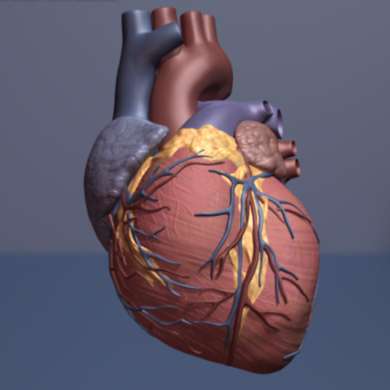Engaging pharmacists to improve atrial fibrillation care

Atrial fibrillation, or AFib, is the most common type of irregular heartbeat, estimated to affect about 12.1 million U.S. adults by 2030. The abnormal firing of electrical impulses causes part of the heart to quiver, or fibrillate, often leading to complications and up to a fivefold increased risk of stroke.
To help ensure all patients with AFib receive the most appropriate care, the American Heart Association is launching a new effort to educate and engage pharmacists, an important but underrepresented voice in AFib care.
This new effort, being conducted through June 2025, is the latest phase of the Association's Four Fs of Atrial Fibrillation initiative, supported by Bristol Myers Squibb-Pfizer Alliance. The Four Fs are patient health concerns impeding guideline-directed anticoagulant therapy, including:
- fear of falling,
- fear of bleeding,
- forgetfulness, or cognitive dysfunction and
- frailty.
Pharmacists are often not consulted in the decision-making conversations for Afib patients during the patient care journey. During this next phase of the initiative, the Association will convene pharmacists in a roundtable event to identify gaps and opportunities related to AFib in this field. The Association then will share resources and insights nationally across thousands of hospitals and outpatient clinics.
"Pharmacists are an integral part of the multidisciplinary team to optimize care for individuals with atrial fibrillation," said Cody Parsons, APh, PharmD, BCCCP, manager of clinical operations for Stanford Health Care's cardiovascular health service line. "The insight of pharmacists in evaluating the medical complexity and use of multiple medications is essential in facilitating safe and effective anticoagulation and ultimately preventing life-altering medical consequences of AFib."
AFib is often only detectable during physical examination, although some affected people may experience fatigue, rapid and irregular heartbeat or other discomfort. The use of anticoagulant therapy to reduce stroke risk is supported by science, but many patients remain untreated or undertreated.
This is the latest in ongoing efforts by the American Heart Association, the world's leading voluntary organization focused on heart and brain health and this year celebrating 100 years of lifesaving service, to advance health and hope for everyone, everywhere.
Provided by American Heart Association